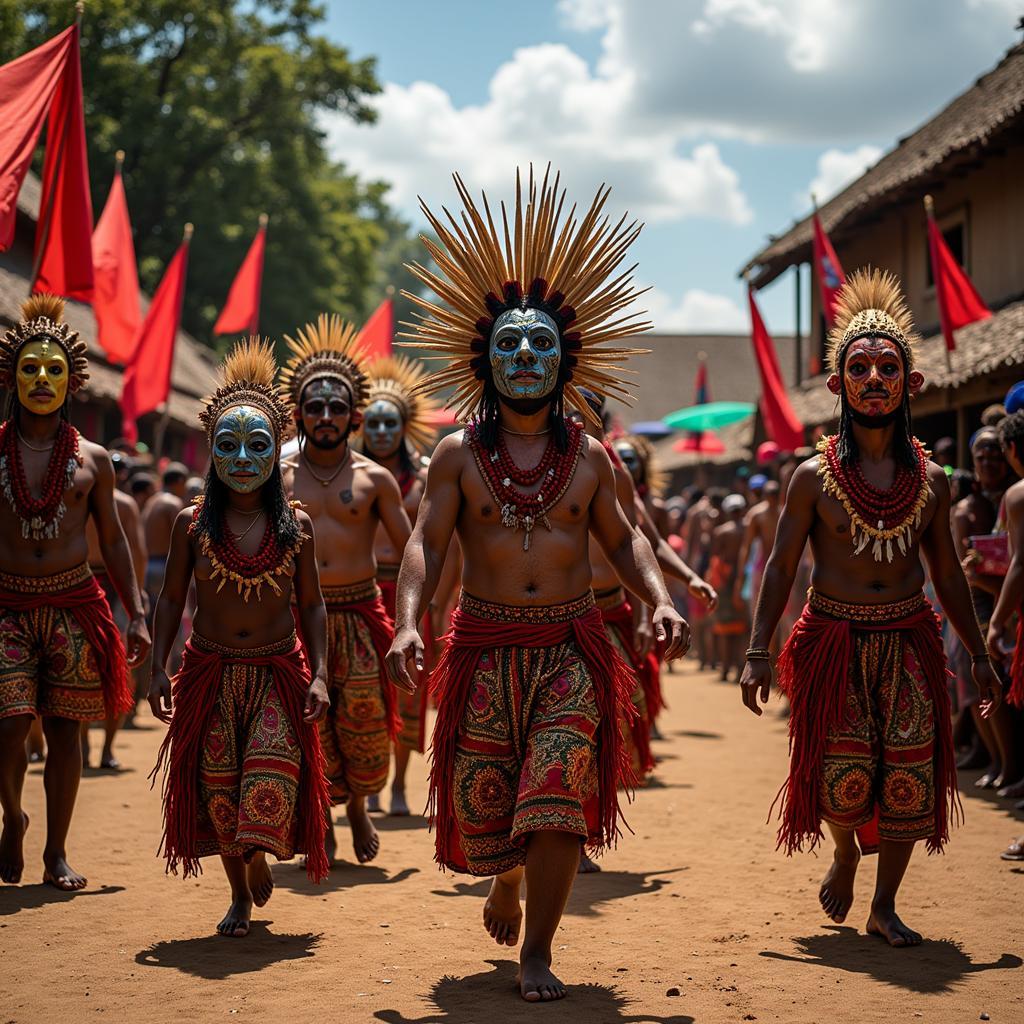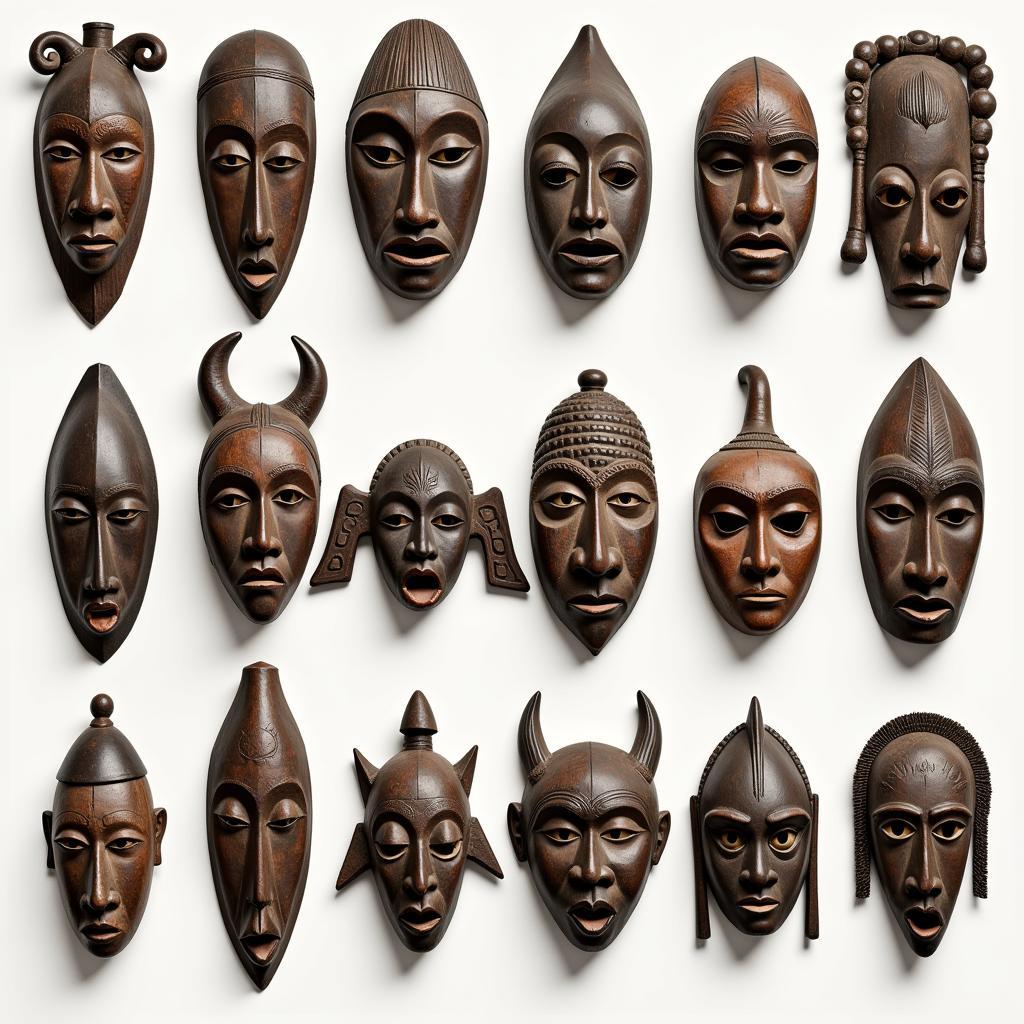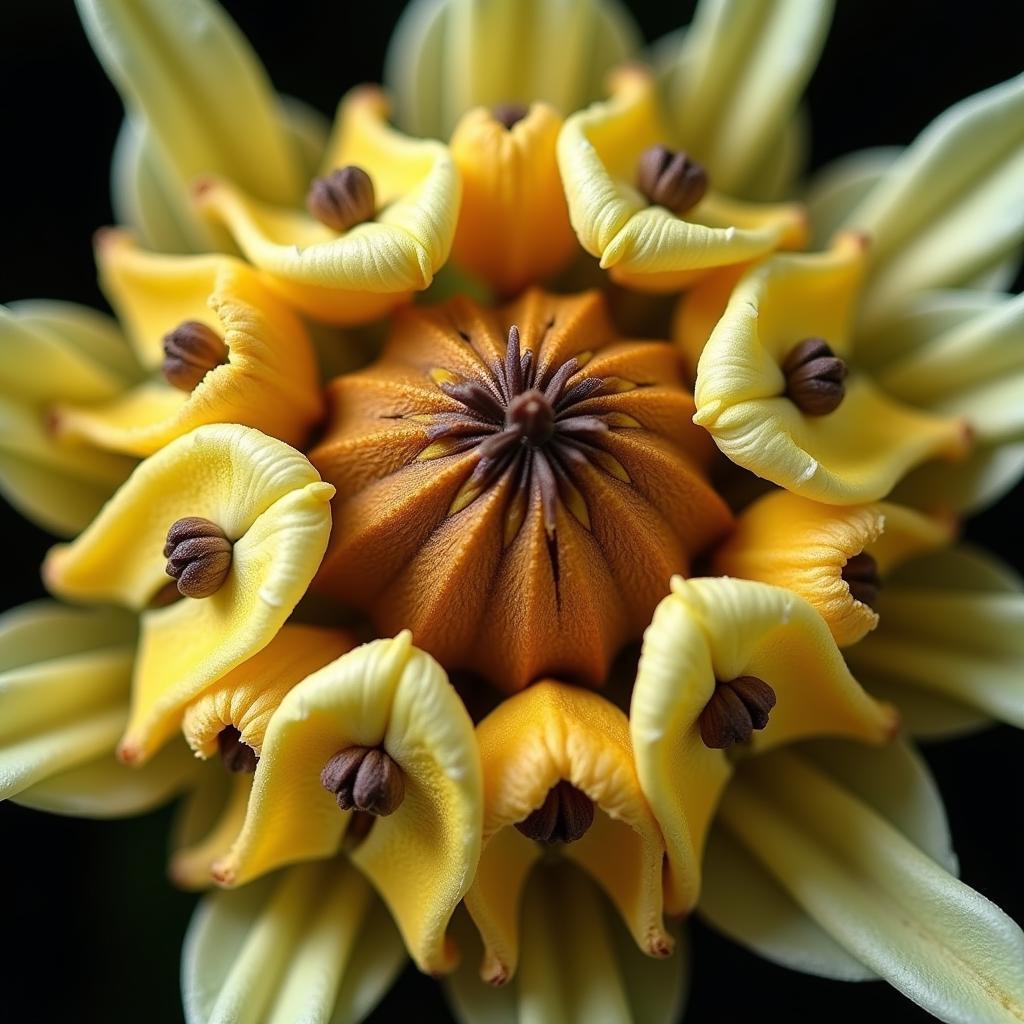Unveiling the Enigma: The Significance of the African Baule Mask
The African Baule Mask, steeped in tradition and imbued with spiritual significance, occupies a captivating space in the realm of African art. Originating from the Baule people of Côte d’Ivoire, these intricately crafted masks offer a glimpse into a rich cultural tapestry woven with ancestral veneration, social values, and artistic finesse.
A Legacy Carved in Wood: The Origins of Baule Masks
The Baule people, renowned for their refined artistry, believe that the spirit world and the human realm coexist.  Baule Mask Ceremony This interconnectedness finds profound expression in their masks, which serve as conduits for communication with the supernatural. Crafted primarily from wood, these masks are meticulously sculpted with a keen eye for detail, reflecting the Baule’s deep reverence for their ancestors and the spirit world.
Baule Mask Ceremony This interconnectedness finds profound expression in their masks, which serve as conduits for communication with the supernatural. Crafted primarily from wood, these masks are meticulously sculpted with a keen eye for detail, reflecting the Baule’s deep reverence for their ancestors and the spirit world.
More Than Just a Face: Deciphering the Symbolism
Baule masks are far more than decorative objects; they are powerful symbols embedded with layers of meaning. Often used in rituals and ceremonies, these masks represent specific spirits or ancestors, each embodying unique characteristics and powers. For instance, the Goli mask, with its elongated face and serene expression, embodies the spirit of wisdom and tranquility, while the Mblo mask, characterized by its fierce features and elaborate headdress, represents the spirit of war and protection.  Different Types of Baule Masks
Different Types of Baule Masks
The intricate details adorning the masks—scarification marks, hairstyles, and jewelry—are not merely decorative but hold symbolic significance, further enriching their narrative. For example, the presence of a bird motif on a mask might symbolize spiritual elevation or the ability to communicate with the divine.
The Dance of Spirits: Baule Masks in Ritual and Performance
Baule masks come alive during ceremonies and rituals that punctuate the rhythm of Baule life. These events, often accompanied by music, dance, and elaborate costumes, provide a platform for the masks to interact with the community, offering blessings, guidance, and protection.
One such ceremony is the Mblo dance, a vibrant display of athleticism and spiritual connection. During this ritual, dancers wearing Mblo masks embody the spirits of deceased warriors, their movements a potent blend of power and grace. abd pic with family in south african jersey These performances are not merely entertainment; they are powerful expressions of cultural identity and spiritual beliefs, strengthening the bonds between the living and the dead.
Beyond the Sacred: The Evolution of Baule Masks
While deeply rooted in tradition, Baule masks have also demonstrated an ability to adapt and evolve. With the arrival of European colonialism in the 20th century, the purpose and meaning of these masks underwent a transformation. Once exclusively sacred objects, Baule masks began to enter the realm of art collecting, becoming coveted pieces in Western museums and private collections.
This shift in context has raised important questions about cultural ownership, appropriation, and the ethical implications of displaying sacred objects outside of their original context. Despite these challenges, Baule masks continue to captivate the world with their artistry and cultural significance, serving as powerful reminders of the enduring legacy of African art and tradition.
FAQs About African Baule Masks
What materials are Baule masks made from?
Baule masks are primarily carved from wood, often utilizing local hardwoods known for their durability.
How are Baule masks used in ceremonies?
Baule masks are worn by dancers during rituals and ceremonies, embodying specific spirits or ancestors. The masks interact with the community, offering blessings, guidance, and protection.
What is the significance of the designs on Baule masks?
Every detail on a Baule mask, from scarification marks to hairstyles, holds symbolic meaning and contributes to the mask’s overall narrative and spiritual significance.
Exploring Further:
For a deeper dive into African art and culture, consider these resources:
Need More Information?
Contact us for any questions or assistance:
- Phone: +255768904061
- Email: kaka.mag@gmail.com
- Address: Mbarali DC Mawindi, Kangaga, Tanzania
Our dedicated customer support team is available 24/7 to help you.

